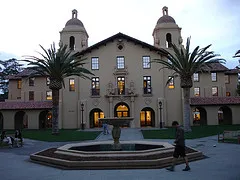Table of Contents
According to Stanford’s “all-comers” policy, student groups cannot prohibit a student from participating in their group based on race, sex, sexual orientation, or any status. Recent court cases like CLS v. Martinez have included beliefs in that list. In October, dean of religious life Scotty McLennan told the Stanford**Daily that he believes these decisions will have “a positive impact on Stanford.” We strongly affirm the prohibition on status-based discrimination, but we urge the university to rethink and clarify their all-comers policy in regards to stated beliefs and student groups.
In the CLS v. Martinez Supreme Court case the majority on the court held that discriminating by beliefs, though technically not a status, could end up in de facto discrimination by status.
With this Supreme Court decision backing them, Stanford University mandates an all-comers policy for student groups. If student groups do not allow students with opposing beliefs into leadership roles, then the groups cannot be officially registered on campus which will result in a loss of several benefits that allow them to better recruit and serve members.
We fundamentally disagree with the Supreme Court’s ruling in CLS v. Martinez, because it violates freedom of speech, religion, and association. But as long as this ruling does not change, Stanford must choose how to move forward in enforcing their policy with conformance to the ruling.
The university has made it clear that they place preeminence not on the stated mission of the student group, but on fulfilling the paradoxical demands of the all-comers policy. When students come together to form a group, they do so with the intent of achieving a common purpose. Beyond just the intent of the group members, most official Stanford student groups have a purpose written into their constitution that will exist into perpetuity, no matter the group membership.
Though the university seems to place importance on the value of a group’s purpose, the all-comers policy could force groups to admit students intent on hurting that purpose. Take the hypothetical question: what if a Republican wants to be on the leadership team of the Stanford Democrats? What if this Republican was more skilled than anyone else with years of organizational and finance experience in political organizations? The Stanford Democrats would be forced to admit him.
In a statement made to the Review in 2010, Nanci Howe, associate dean and director of SAL, claimed that the university would expect group members to be “interested in the group’s statement [sic] mission,” and that if a member were disrupting group activities, then the university would be inclined to intervene. If this is truly the case, then the university is pursuing two paradoxical paths on the issue of the all-comers policy, and it needs to define which one it is actually pursuing.
If someone cannot affirm the beliefs of a group, and thus affirm its purpose, then their actions in that group would presumably run counter to the purpose of the group. This would constitute a disruption, which the university should prevent. But let us imagine the Republican in Stanford Democrats works to fulfill the tasks set before him, but just does so in an inefficient way, ultimately making the group less effective. This would not necessarily be a disruption, but in this case the student group would be able to replace this member due to his lack of skill, a characteristic for which groups can discriminate.
With these two situations, the only way somebody could be admitted to a student group is if they fully agree to carry out the purpose of the group to the best of their ability, even if they do not belief in the purpose. If this is the case, then groups should be able to require that leaders sign a contract that would not be the affirmation of a statement of beliefs, but rather a promise to carry out the group’s purpose (which would likely be the implementation of those beliefs). If someone can so disconnect their core beliefs from their actions, then they can absolutely, per the all-comers policy, participate in the group they so choose.
If this is how the university has chosen to enforce its all-comers policy, then it has a duty to make this policy clear to student groups on campus and to stop dancing around the issue with vague statements about wanting all students to have leadership experience. However, if this is not how they will choose to enforce the all-comers policy, then the university will destroy the concept of student groups and the benefit that comes with students choosing a cause and developing skills in advancing that cause.
In the midst of the CLS v. Martinez decision, Stanford needs to affirm its faith in freedom of association and speech by supporting student groups’ right to pursue a common purpose. This can be done within the constraints of the CLS ruling, and it can set a precedent for valuing first amendment rights in universities across the nation.





